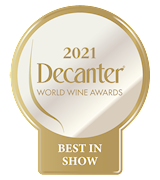Best Province of Cuneo Beverage Types
This full-bodied, red wine is made from Nebbiolo grapes in a small area in Piedmont with a unique soil and climate conditions. It has been produced since the 19th century, and soon after its invention, it became a favorite among the Italian and European nobility.
According to Italian DOCG regulations, Barolo needs to matured for at least 36 months, while those aged for five years carry the prestigious Riserva label. It is a robust, but elegant wine, which is very high in tannins that soften with aging.
THE BEST Barolo Wine Appellations
This red Italian wine is produced in the DOC region that surrounds the city of Alba and in some areas overlaps with Barolo and Barbaresco wine regions. The wine is produced with a minimum of 85% Barbera grapes, with the only permitted addition of Nebbiolo. Barbera d’Alba wines are age worthy and well-balanced, with high acidity, refined tannins, and typical floral and fruit notes, which may evolve with age.
Though they are bold and rich, the acidity in the wine makes it work well with charcuterie, cheese, poultry, risottos, and pasta dishes.
This powerful red wine is produced from Nebbiolo grapes grown on the nutrient-rich soils around the city of Barbaresco in Piedmont. For a long time, the wine was considered as the less prestigious, lighter cousin of the Nebbiolo-based Barolo, but in the 1960s Barbaresco managed to emerge from Barolo’s shadow and position itself as an approachable, good-quality wine.
According to the Italian DOCG regulations, Barbaresco needs to mature for at least two years, while those aged for four years carry the label Riserva. Barbaresco wines are often described as refined and elegant, but also rich in acidity and tannins, with spicy flavors and aromas of roses, fruits, licorice, and truffles.
THE BEST Barbaresco Wine Appellations
Asti Spumante is a fully sparkling wine produced under Asti DOCG appellation. It is made from Moscato Bianco grapes and most commonly by Charmat method, in which fermentation takes place in pressurized tanks. If it is made using the traditional method, where the wine undergoes a second fermentation in the bottle, it is labeled Asti Spumante metodo classico.
The best examples of Asti Spumante are light, fresh, and sweet, without being cloying. Flavors and aromas are floral and fruity, reminiscent of peaches, pears, oranges, acacia, and honeysuckle. Asti Spumante wines are traditionally paired with desserts, but they also make a great aperitif and go well with charcuterie.
Arneis is a native grape from Piedmont that gives the best results in Roero—where it is used in the production of the famed Roero Arneis DOCG. Its exact origin is not known, but it is assumed that it has been cultivated in the area since the Roman times.
Between two world wars, it was on the verge of extinction, but in the 1960s, it was reintroduced to the region as a variety that has excellent potential to produce refined dry wines of great character. The grape is also used in the production of dessert and sparkling wines.
Exclusively made from Dolcetto grapes, this fruity and fresh Italian wine is produced in the provinces of Asti and Cuneo. Usually lighter and more subtle than other Dolcetto counterparts, these medium-bodied red wines are characterized by the aromas of dark fruit, with hints of pepper, licorice, and spices, and a typical almond finish.
Though are usually enjoyed young, some styles may age well, and to be classified as Superiore, they need to mature for a minimum of twelve months. Often dubbed as food-friendly wines, Dolcetto d’Alba pair well with charcuterie, legume dishes, or pizza, as well as some of Piedmont classics such as carne cruda, agnolotti del plin—pasta variety with a meat filling—and different pasta dishes with veal or beef ragùs and mushroom-based sauces.
Dolcetto di Diano d'Alba is an Italian appellation from Piedmont designated for production of red varietal wines that are made exclusively from Dolcetto—a grape native to the region. These ruby red wines will usually display fruity aromas of plums, berries, and cherries that are sometimes accompanied by spicy and floral notes.
Often, they will also have a subtle almond finish. These wines are best paired with local cuisine, and they can match anything from pasta dishes, soups, charcuterie, risottos, poultry, and cheese.
Hailing from Piedmont, these white wines are produced from Arneis grapes, which must constitute at least 95% of the blend. Dry and crisp Roero Arneis wines are well-structured, with typical floral notes and fruity nuances of apricots or pears.
Their fresh, mineral flavor and well-balanced acidity can match a variety of dishes, from appetizers, soups, and salads to lighter pork and chicken based dishes. Roero Arneis is also produced as a sparkling (spumante) wine.
Exclusively made from Dolcetto grapes, which are grown on the hilly vineyards surrounding the city of Dogliani, this DOCG label produces full-bodied, ruby red wines with intense aromas of fresh fruit, and a typical almond finish. They can be enjoyed young, while the Superiore labels must age for a minimum of 12 months.
Because of its good acidity and tannins, as well as its vibrant character, Dogliani wines can pair with a variety of dishes. They perfectly match traditional Piedmont classics such as agnolotti del plin—pasta variety stuffed with a meat filling—as well as other rustic meat and pasta dishes, preferably with truffle or mushroom sauces.
Roero is an Italian DOCG appellation from Piedmont that is probably best known for its white Arneis-based wine, but the region also produces excellent Nebbiolo-based reds. The wines from this region are softer and less tannic than those from Barolo and Barbaresco—the two most famous regions for Nebbiolo.
In Roero, Nebbiolo has to make 95% of the blend, but most examples are 100% Nebbiolo. The wines are fruity, aromatic, and richly flavored, with typical cherry, earthy, and violet aromas. They have a slightly lighter character than the reds coming from Barolo and Barbaresco.
Best Province of Cuneo Beverage Producers
Distilleria Sibona is one of the oldest distilleries in the Piedmont region, located in the heart of Roero. It is renowned for its artisanal production of grappa, utilizing fresh pomace from prestigious local wineries. Sibona holds a unique historical distillation license and prides itself on its deep connection to traditional methods while incorporating modern techniques to ensure high-quality products.
Their grappa is aged in various types of barrels, including those used for sherry, port, and whiskey, enhancing the flavor profile and creating distinctive spirits.
AWARDS
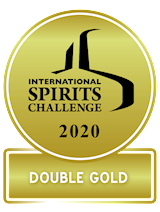
ISC-International Spirits Challenge - Double Gold
2020

IWSC- International wine & spirit competition - Spirit Gold
2024, 2022, 2021, 2019
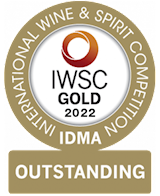
IWSC- International wine & spirit competition - Spirit Gold Outstanding
2024, 2023, 2022, 2021
BEST Distilleria Sibona Spirits
Poderi Aldo Conterno is a prestigious winery located in the heart of the Barolo region, specifically in Bussia Soprana, Monforte d'Alba, Piedmont, Italy. Established in 1969 by Aldo Conterno, the estate is now managed by his sons: Franco, Stefano, and Giacomo, who continue the family tradition.
The winery spans 25 hectares of vineyards situated at elevations between 350 to 400 meters above sea level. The soil is rich in clayey marl and limestone with layers of sand, contributing to the unique character of their wines.
AWARDS

James Suckling - 98 points
2024
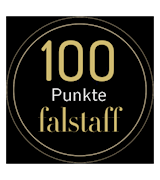
Falstaff - 100
BEST Poderi Aldo Conterno Wines
Giuseppe Rinaldi is one of the Piedmont’s most highly regarded producers and a leading standard-bearer of old-school Langhe wines. Giuseppe ‘Beppe’ Rinaldi, a true traditionalist, took over the estate from his father in 1992, and continued making the traditional-styled wines that had become increasingly sought-after.
Rinaldi always believed that the best wines from Barolo were blends from several sites and his most prominent wines were blends from the Brunate and Le Coste, and the Cannubi and Ravera vineyards respectively, and were labeled as such.
AWARDS

Falstaff - 100

Falstaff - 99
BEST Giuseppe Rinaldi Wines
AWARDS

Falstaff - 100

Falstaff - 99
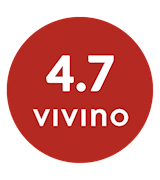
Vivino - 4.7
Distilleria Bordiga is an Italian artisanal distillery founded in 1888 by Pietro Bordiga, a master herbalist and pioneer in crafting spirits and liqueurs. Located in Cuneo, Piedmont, at the foothills of the Alps, Bordiga has remained synonymous with quality, tradition, and innovation for over a century.
The distillery's products are crafted using hand-picked Alpine herbs, roots, and flowers, as well as premium wines from the Piedmont region, such as Barolo and Barbaresco. These ingredients, combined with time-honored recipes and traditional methods, ensure that every bottle reflects the rich heritage and unique flavors of the region.
AWARDS
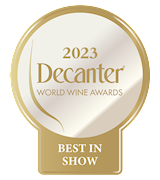
Decanter World Wine Awards - Best in Show
2023
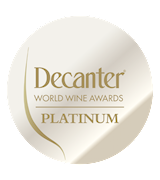
Decanter World Wine Awards - Platinum
2022
BEST Damilano Wines
AWARDS

Falstaff - 99
BEST Luciano Sandrone Wines
Best Province of Cuneo Beverages
The Grappa Riserva in Botti da Madeira by Distilleria Sibona is a premium spirit aged in Madeira wine barrels, which imparts unique and refined flavors. This grappa has undergone a double aging process, first in traditional oak barrels and then in Madeira barrels, adding rich notes of dried fruit, spices, and a delicate sweetness.
The result is a well-balanced, smooth grappa with a lingering and complex finish, ideal for connoisseurs who appreciate nuanced and sophisticated spirits.
AWARDS

ISC-International Spirits Challenge - Double Gold
2020

IWSC- International wine & spirit competition - Spirit Gold Outstanding
2023, 2022, 2021

IWSC- International wine & spirit competition - Brandy Gold Trophy
2022
Distilleria Sibona's Bitter 20 Aperitivo is a vibrant and refreshing spirit, crafted with a blend of botanicals that deliver a balanced bitterness. With its 20% ABV, it offers a lighter option for aperitivo moments, perfect for making classic cocktails like Negroni or Spritz.
The aromatic profile features citrus and herbal notes, creating a crisp, invigorating taste. This bitter aperitivo is ideal for those who appreciate a sophisticated, slightly bitter drink with a refreshing twist, reflecting the traditional Italian aperitivo culture.
AWARDS
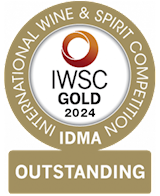
IWSC- International wine & spirit competition - Spirit Gold Outstanding
2024
Distilleria Sibona Civico 10 Vermouth Di Torino Rosso Superiore is an exceptional Italian vermouth crafted by Distilleria Sibona, a renowned distillery with deep roots in Piedmont’s tradition of fine spirits. This Vermouth di Torino Rosso Superiore stands out for its elegance and complexity, made using carefully selected local red wines as the base, enriched with a harmonious blend of aromatic herbs, spices, and botanicals sourced from the region.
The production process involves a precise maceration of botanicals, including wormwood (Artemisia), citrus peel, vanilla, gentian, and other carefully guarded ingredients, which give this vermouth its distinctive character. The result is a deep ruby-red vermouth with an enticing aroma of dried herbs, sweet spices, and subtle notes of bitter orange and vanilla.
AWARDS
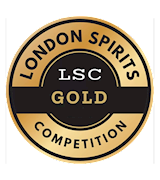
London Spirits Competition - Gold
2024
Distilleria Sibona La Grappa di Barolo is a prestigious Italian grappa distilled by Distilleria Sibona, one of the most respected distilleries in the Piedmont region, renowned for its mastery of traditional Italian spirits. This exceptional grappa is crafted from the pomace of Nebbiolo grapes, the same variety used to produce the legendary Barolo wine, often referred to as the "King of Wines." La Grappa di Barolo is distilled using a careful and artisanal method in copper stills to ensure the purest expression of the grape's essence.
Following distillation, it is aged in oak barrels, which enhance its complexity and lend it a refined character. The result is a crystal-clear spirit with a golden hue, a rich and elegant aroma, and an impressive balance of flavors. On the nose, it reveals notes of ripe fruit, dried flowers, vanilla, and subtle hints of oak.
AWARDS

London Spirits Competition - Gold
2024
Bordiga Vermouth di Torino Bianco is a premium Italian vermouth crafted from an ancient original recipe, using high-quality ingredients such as Piedmontese wines and natural infusions. It features an intense yellow color with amber notes, a vinous aroma with floral and spicy hints, and a well-balanced taste that starts with the sweetness of Moscato and evolves into a pleasant bitterness.
Made with Alpine botanicals like wormwood, marjoram, mint, and Madagascar Bourbon vanilla, alongside wines such as Moscato Secco and Trebbiano, this vermouth undergoes a meticulous production process spanning over 40-50 days before bottling, with an additional resting period in cellars at a constant 15°C.
AWARDS

London Spirits Competition - Gold
2024
Grappa di Moscato by Distilleria Sibona is a refined grappa distilled from fresh Moscato grape pomace, a variety known for its aromatic richness. This grappa is characterized by its elegant, floral bouquet with hints of citrus, honey, and white fruits.
The smooth, velvety texture and pleasant sweetness make it a delightful choice for those who enjoy lighter, fragrant spirits. Its fresh and aromatic profile captures the essence of Moscato grapes, offering a delicate and harmonious tasting experience.
AWARDS

IWSC- International wine & spirit competition - Spirit Gold Outstanding
2022
AWARDS
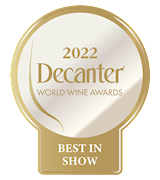
Decanter World Wine Awards - Best in Show
2022
AWARDS

Decanter World Wine Awards - Best in Show
2023
AWARDS
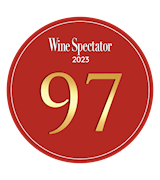
Wine Spectator - 97
2022
AWARDS
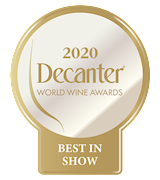
Decanter World Wine Awards - Best in Show
2020
TasteAtlas food rankings are based on the ratings of the TasteAtlas audience, with a series of mechanisms that recognize real users and that ignore bot, nationalist or local patriotic ratings, and give additional value to the ratings of users that the system recognizes as knowledgeable. TasteAtlas Rankings should not be seen as the final global conclusion about food. Their purpose is to promote excellent local foods, instill pride in traditional dishes, and arouse curiosity about dishes you haven’t tried.













